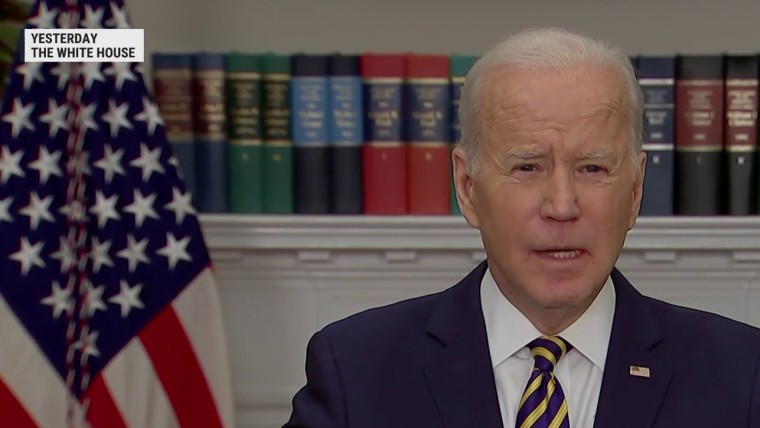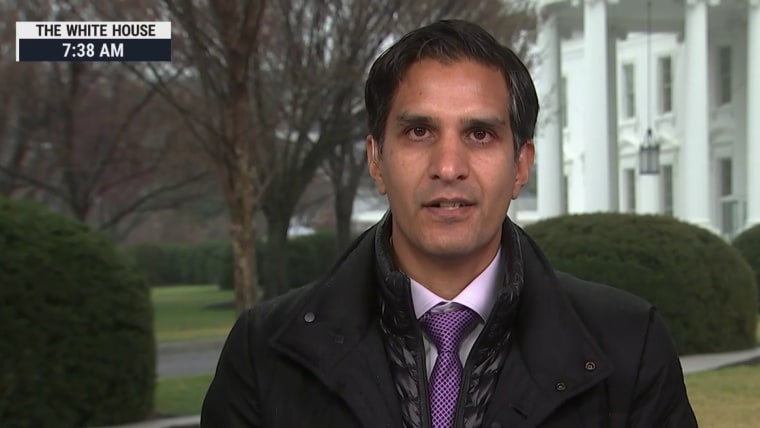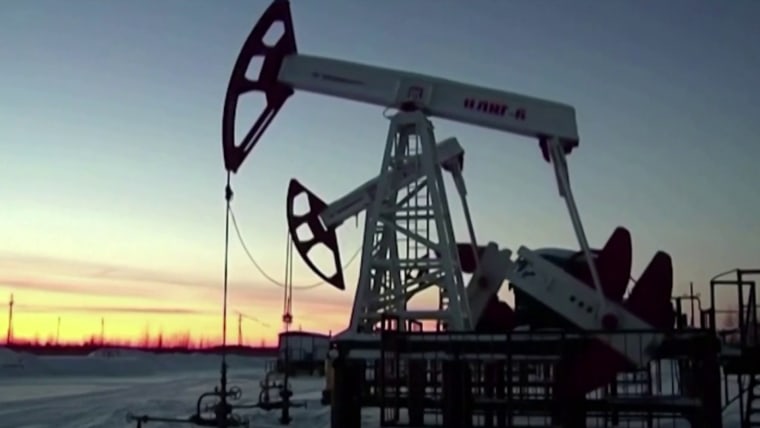Now that the United States has placed a ban on Russian oil in response to Russian President Vladimir Putin’s invasion of Ukraine, a secret visit by senior U.S. officials over the weekend to the oil-rich country of Venezuela is cast in a new light. The blatantly hypocritical course of action confirms, once again, that American interests will always win out, no matter who is involved.
When it comes to recent U.S.-Venezuela policy, the situation is even more cynical and complex than meets the eye.
Just over a year ago, the Biden administration maintained the Trump administration’s hard-line stance toward Venezuelan President Nicolás Maduro. Back then, the U.S. did not consider Maduro the country’s legitimate president but, like Trump, deemed Juan Guaidó, who still has not recovered from a failed uprising in 2019, as the country’s president.
“I certainly don't expect this administration to be engaging directly with Maduro,” a State Department spokesperson said last February, adding, “We certainly don't expect any contact with Maduro anytime soon.”
Yet, 13 months later, secret visits to Venezuela are taking place now that U.S. gas prices have climbed to their highest rate since 2008.
The hypocrisy is clear. But when it comes to recent U.S.-Venezuela policy, the situation is even more cynical and complex than meets the eye. President Joe Biden is taking a political risk by banking on the hope that bringing Venezuela back into the fold for oil will help stave off what he said Tuesday was “Putin’s price hike” on gas. But such a risk could eventually haunt his administration.

Biden's hard-line anti-Maduro stance had already softened a bit. In December, senior Biden official Roger Carstens, one of the officials who secretly traveled to Venezuela this past weekend, paid a visit to nine Americans detained by the Maduro government. From Caracas, Maduro himself said Tuesday that he was open to improving relations with the U.S., citing the weekend visit in some of his remarks. By Tuesday night, Maduro was releasing two of those American prisoners.
“We have agreed to work on an agenda going forward, issues of interest,” Maduro said. “It seemed to me very important to be able, face to face, discuss issues of maximum interest to Venezuela and the world. And I ratify, as I said to the delegation, all our will to advance in an agenda of well-being and peace through diplomacy, respect and the highest hope for a better world.”
Maduro’s conciliatory remarks would suggest that when oil and money are involved, inconveniences like drug trafficking charges against him shouldn’t get in the way.
Before the weekend visit from Biden officials, Maduro — a Putin ally — was slamming the U.S. and other Western countries for denying Russian banks access to the SWIFT system and banning Russian airlines.
“It’s a crime what they’re doing to the Russian people, an economic war,” he said. “It’s craziness what they’re doing.”
Maduro’s conciliatory remarks would suggest that when oil and money are involved, inconveniences like drug trafficking charges against him shouldn’t get in the way. Venezuela’s president might need a new ally. Why not a country that wants lower gas prices?
This new uneasy relationship between Biden and Maduro has already turned partisan and political, giving Republicans — particularly 2024 presidential hopefuls from Florida, where there is a significant Venezuelan population of voters — an effective talking point.

“It is wrong for the Biden administration to beg for oil from Venezuela and legitimize Maduro’s communist regime during an official visit,” Florida Gov. Ron DeSantis noted via Twitter. “The U.S. should hold Maduro accountable while increasing domestic energy production so we won’t need to rely on hostile regimes for energy. In the end, a consequence of the Russian invasion could lead to another unlikely pairing. It won’t be the first time the United States has down business with leaders they would rather want removed.”
This is what a war does to policy. It completely flips it. Before the Bolivarian Revolution of Hugo Chávez, U.S. interventionism was the standard and oil was the bounty. Now the U.S. has more or less glossed over the fine print and complexities of its history with Venezuela, because oil is oil.
The Biden administration is not fooling anyone; the condemnations and sanctions against Maduro and Venezuela are just mere symbols. In his view, “Putin’s price hike” needs to be stopped, even if it means doing business with a leader the U.S. still doesn’t even formally recognize.
But Biden is playing a dangerous political game. A short-term fix with Venezuela might lower gas prices but it also exposes America’s self-interest. And it will give Republicans the easy fodder to prove that the Biden administration is just as “socialist” as Maduro.
Back in 2020, the Biden administration had a golden opportunity to radically alter how to deal with Venezuela. It could have called for real democratic measures. It could have stopped deportations of Venezuelans. It could have recognized Maduro as president. Instead, it kept the course on promoting an opposition that has yielded only symbolic pockets of political power while the country suffers.
It’s no wonder that even countries like Colombia, whose current president is staunchly anti-Maduro, said this week that the only way to change Venezuela is through elections.
Imagine if the Biden administration had taken that stance in 2020 instead of sticking to the Trump hard-line stand. Such a play for more oil during a war wouldn’t appear so painfully obvious today.

